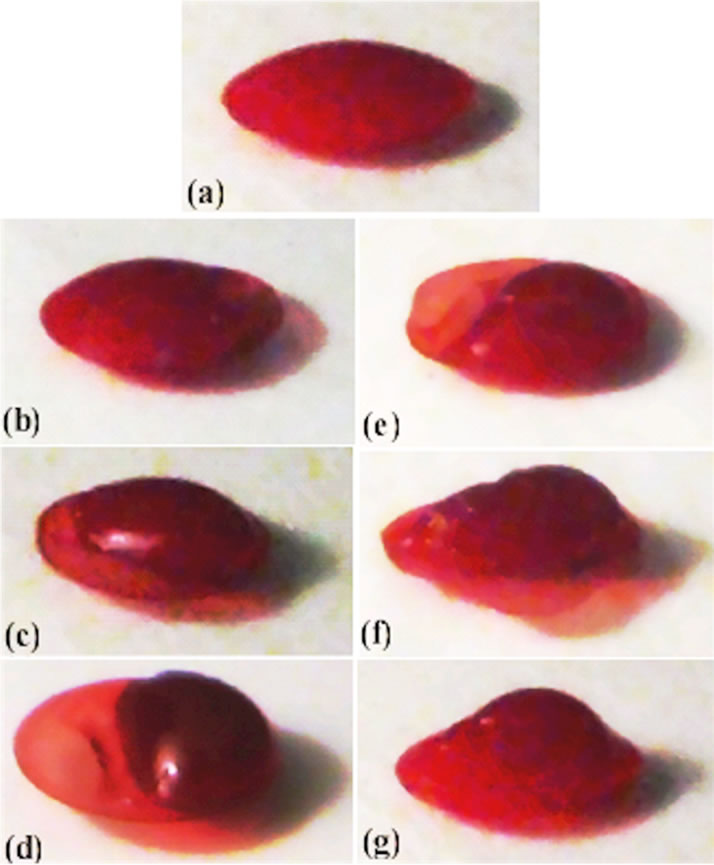What Do They Test For When You Donate Plasma All donors must be screened for HIV, hepatitis B and hepatitis C at each donation using nucleic amplified testing, a state-of-the-art testing method that tests for the DNA particles of the virus. In addition, each plasma donation is tested for antibodies that the body produces in response to a virus.
What do they test for when you donate plasma?
Pass a viral test. Some people cannot donate plasma, including those with certain medical conditions and autoimmune diseases. You may also wonder if you are still eligible to donate plasma if you’ve received the COVID vaccine. Since plasma donation requirements are location-specific, it can be difficult to determine whether you qualify.
What tests are performed on donated blood?
Feb 12, 2021 · Thirteen tests are performed on all donated blood, including: ABO blood grouping and Rh type, cholesterol, hepatitis (hepatitis B surface antigen, hepatitis B core antibody, and hepatitis C antibody), HIV (HIV-1 antibody, HIV-2 antibody, and HIV-0 antibody), HTLV (Human T-Lymphotrophic Virus Type I and II antibodies), red cell antibody screen, West Nile virus and …
What are the requirements to donate blood or plasma?
Mar 10, 2022 · The maximum plasma donation frequency is once in 2-day period, and no more than twice in a 7-day period. Blood Types: All blood types are needed! All blood types can give plasma. Eligibility Factors: In most states, you must be 17 years or older to donate, but many states allow a 16-year-old to donate blood with parental consent.
What is plasma donation?
Nov 12, 2019 · The requirements for donating plasma are fairly consistent. You must be at least 16 years old, weigh over 110 pounds, and have a valid ID. Do they drug test you before donating plasma? Not generally — people who take certain prescription drugs, show signs of injectable drug use, or are visibly intoxicated are not allowed to donate plasma.

How old do you have to be to donate blood?
Eligibility and Screening. Certain criteria will keep you from becoming a donor. For example, donors are screened for age (you must be at least 17 years old to donate blood) and weight (you need to weigh at least 110 pounds [50 kilograms] to be a donor). The average human has about 10 to 12 pints of blood circulating throughout ...
How much blood does a human have?
The average human has about 10 to 12 pints of blood circulating throughout the body at any given time, which is about 7 percent of your total body weight. Donors who weigh between 110 and 149 pounds (50 and 68 kilograms), for example, are allowed to donate a volume of 1.5 pints (705 milliliters) of plasma while the volume ...
How old do you have to be to donate plasma?
The requirements for donating plasma are fairly consistent. You must be at least 16 years old, weigh over 110 pounds, and have a valid ID. Do they drug test you before donating plasma?
How does plasma donation help?
Plasma donations help save lives and can put a little extra cash in your wallet. While many people experience very mild side effects, there are a few to consider, and you should consult with your doctor before your initial donation for their recommendation. Follow the proper health guidelines to ensure that you’re a good plasma donor candidate, and don’t worry if you’re turned away the first time. Many people can donate again after not being cleared the first time. Remember, your contribution can have a great impact on the health of others in your community.
Why is plasma used in medicine?
Plasma is also used in labs to create medications to treat certain kinds of diseases, such as immune deficiency diseases and certain pulmonary illnesses like hereditary emphysema. The World Health Organization (WHO) considers plasma an essential part of medication.
What is plasma in blood?
Plasma is the liquid part of the blood that contains the elements necessary for blood clotting. Donating it is a more complicated process than donating blood. The blood is drawn from your arm, the components are separated, and the plasma is put into a separate bag. Then, the remaining blood components are inserted back into your arm.
What is plasma therapy?
Then, the remaining blood components are inserted back into your arm. For many chronic diseases, plasma therapy is one of the primary treatments. For example, people with clotting disorders such as hemophilia or bleeding disorders may need scheduled plasma transfusions.
What happens if you donate plasma?
Donating plasma can have side effects that are typically minor, but if it’s your first time donating, you may wish to have a ride home, just in case. Bruising and nerve irritation are among the most common, usually around the injection site. It may have mild swelling, which can be treated with cold packs. Nerve irritation causes immediate, intense pain at the injection site and can cause shooting pain down the arm and into the hand. If this happens, alert the technician — they’ll immediately remove the needle. This should eliminate the stabbing pain, although some mild discomfort may remain for a day or two afterward.
What are the side effects of plasma donation?
Other possible side effects include sweating and paleness, weakness, sudden warmness, or nausea or vomiting. Dizziness and blurred or tunnel vision may also occur. More serious risks of donating plasma may be a drop in blood pressure, which can result in light-headedness or fainting.
How to donate plasma?
What should you eat before giving plasma? 1 Drink 6 to 8 cups of water or juice the day before and day of your donation. 2 Eat a protein-rich, iron-rich meal no more than 3 hours before donating. 3 Don’t eat fatty foods like french fries, potato chips, pizza, or sweets the day you donate.
What is plasma used for?
It contains water, some enzymes, antibodies, and proteins. They use it to create products that can help folks with blood clotting disorders and other diseases. You get paid because it can take about an hour and a half.
Can you receive plasma with AB blood?
For example, people with type AB blood are universal plasma donors, and they can only receive type AB plasma.
Why do doctors order plasma protein tests?
Doctors order plasma protein tests to measure the amounts of specific proteins in the blood. Total protein levels may be higher or lower than average in the case of certain disorders, including: bone marrow disorders. edema (fluid buildup in the tissues) hepatitis (liver infection) HIV. inflammatory bowel disease.
What is plasma protein?
Plasma protein tests are blood tests that detect the amount of proteins in the blood. This lab work is usually ordered as part of a comprehensive metabolic panel (CMP) during a physical exam. The tests can help your doctor determine your overall health. Plasma protein tests are also known as a total protein test.
How do you know if you have low protein?
Symptoms of abnormal protein levels. Certain symptoms may indicate whether you have high or low protein levels in your blood. Symptoms of low protein levels can include: bruising easily. slow clotting of blood after an injury. fatigue. brittle or ridged nails. hair loss. rashes.
What is the A/G ratio?
In addition to albumin levels, your protein test may also detect blood levels of globulin. This is called an A/G ratio. A normal A/G ratio is just above 1 , with albumin being higher than globulin. If this ratio is off, it can affect your total protein count.
What are the two main types of plasma proteins?
Types of plasma proteins. You have two main types of plasma proteins in your blood: albumin, which has many important roles, such as providing amino acids for your body tissues and stopping fluid leaks. globulin, which helps support your immune system, blood clotting, and other vital functions.
Do you need a follow up protein test?
Normal results do not require any follow-up tests, unless your doctor has other concerns about your CMP. If your total protein test results are abnormal, your doctor will likely order a series of follow-up tests, such as: C-reactive protein tests to evaluate for inflammation.
How long does it take to donate plasma?
Requirements to Donate Plasma. Learn More. There is a frequency limit to donating plasma. The human body can typically replace plasma within 24 to 48 hours. This depends on the donor keeping a healthy diet that includes the proper amount of proteins, vitamins and fluids.
Why is plasma used in medicine?
Plasma is the essential groundwork for for a wide range of life-saving and health enhancing medicines.
Can you donate plasma while pregnant?
Any woman who has been or is currently pregnant will not be allowed to donate plasma for her own safety. Women who have been pregnant at any time cannot donate plasma.
Do you have to be in good physical condition to donate plasma?
Physical Condition. Donation centers require that all donors be in acceptable physical condition before they donate any plasma. In the United States, all potential plasma donors are required to submit to a pre-donation physical screening to test their general health.

Popular Posts:
- 1. where to donate broken electronics
- 2. what can you donate for money from your body
- 3. what happens if i donate a kidney
- 4. where to donate stuffed animals during covid-19
- 5. how to add a donate button to my wordpress blog
- 6. what should i donate to a food bank
- 7. where to donate books in new orleans
- 8. how can someone donate you paypal
- 9. how to donate to wildlife in africa
- 10. rdr2 how to donate chapter 6